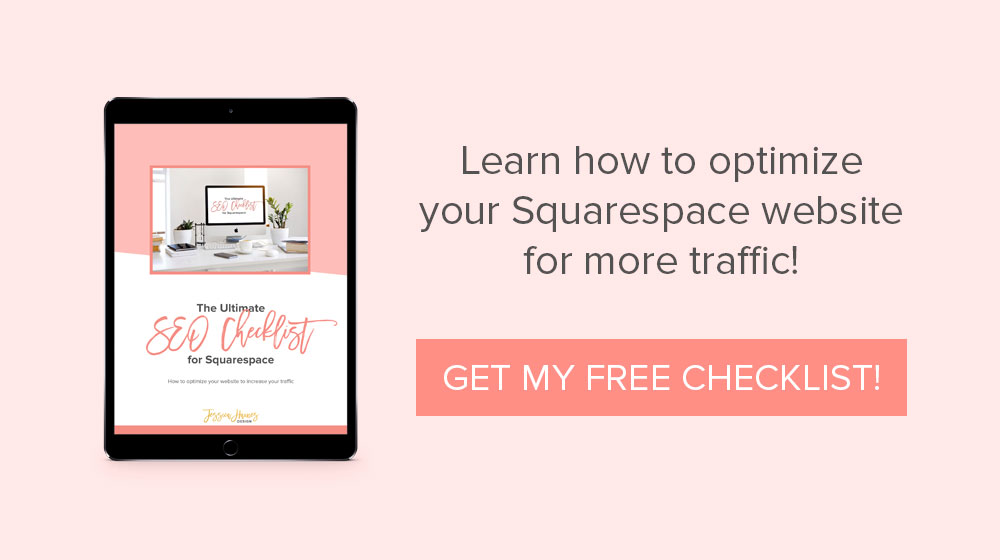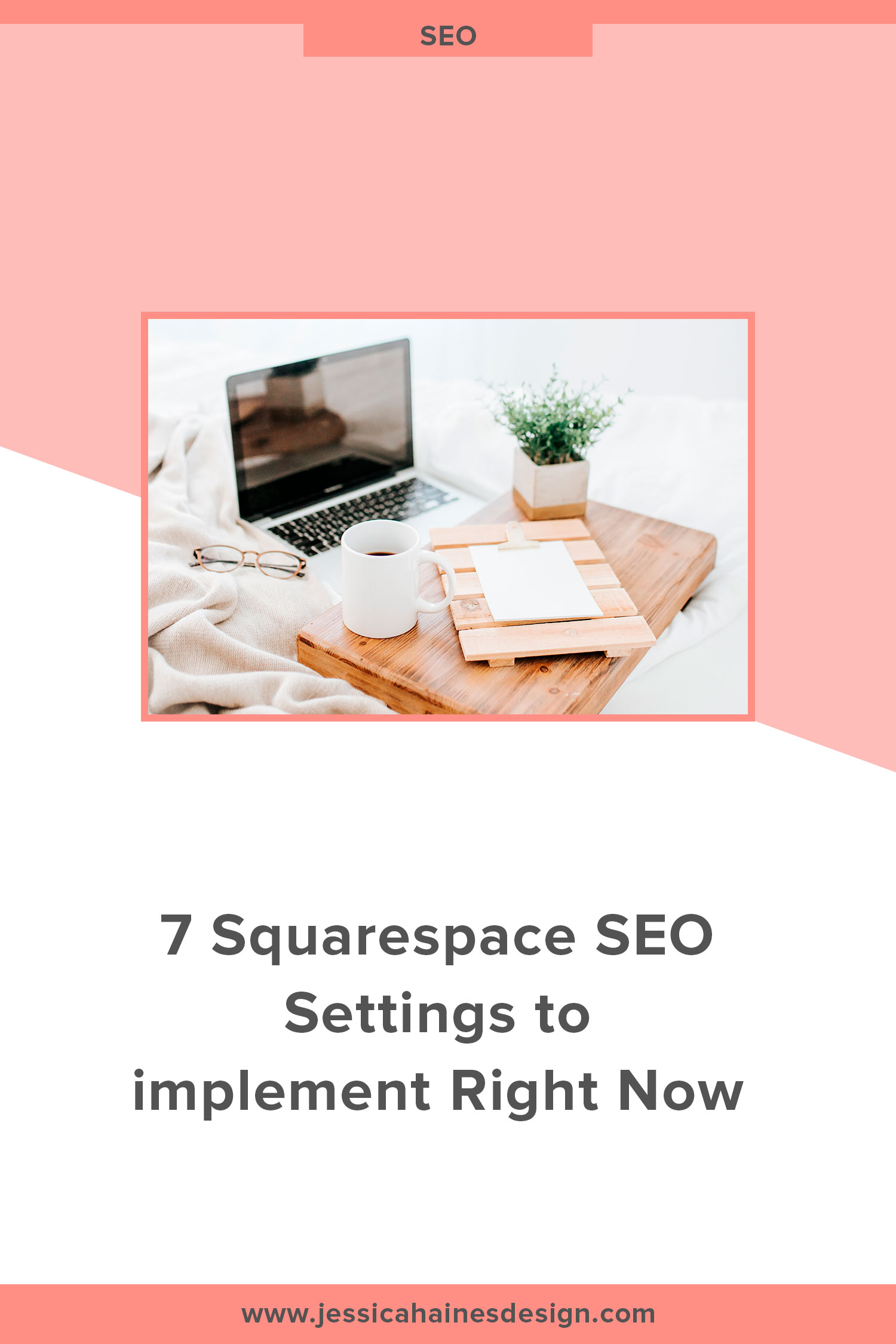2 Squarespace SEO Myths and their Reality
Getting started with Squarespace? Sign up for a free trial here and use the code PARTNER10 for 10% off your first year (Yep, that's an affiliate link!)
If you have a website, you have probably heard the term SEO (or Search Engine Optimization) before. It may sound scary, but I promise it’s not as bad as it sounds! Essentially, SEO is setting your website up in a way that makes it easy to be found on search engines like Google. See, not that bad!
There are plenty of rumors floating around about Squarespace’s SEO capabilities being so terrible that Google won’t display your website in search results. I’ll let you in on a secret: They’re not true at all!
This post will help bust 2 of the main myths I see about Squarespace SEO along with giving some tips on how you can help your content to display well in search results.
Let’s get started!
Myth 1: Squarespace sucks for SEO compared to Wordpress
One of the biggest myths I hear about Squarespace SEO is that it sucks compared to Wordpress because you can’t install an SEO plugin.
I want to start addressing this myth by sharing this quote from Anthony Casalena, the CEO and founder of Squarespace:
"Squarespace is engineered to work properly without a sea of plugins, and you should not take the lack of a plugin for this to mean that we didn't actually just build it right from the start. We actually scan the top installed Wordpress plugins regularly and ensure we simply do all of that in our core."
Squarespace monitors the top plugins being used on Wordpress and integrates the features directly onto their platform, so don’t take the lack of an SEO plugin as a bad thing. In fact, it can actually be a good thing for a few reasons:
You don’t have to worry about plugins needing to be updated or causing issues when you go to update them
There is less chance of a security risk or being hacked because of a plugin you’ve used
Too many plugins can slow down your website
An SEO plugin like Yoast is basically just a checklist that helps you to optimize your website settings and content to give it the best chance of showing on in search results. If you’re not actually completing the tasks is outlines, it doesn’t count for anything anyway. I have included some ways you can optimize your website content below, which you can use as your own checklist when you are creating content for your website.
Myth 2: Squarespace doesn’t let you work on your SEO
Squarespace makes life super easy when it comes to optimizing your SEO settings. It has many built in features that mean you don’t need to be an SEO expert to update your SEO settings yourself.
A few ways Squarespace makes things easy for you:
Squarespace has a section to add SEO descriptions and page descriptions
Squarespace easily integrates with Google Analytics
Your website it automatically optimized for mobile
Security settings are taken care of automatically or with simple tick boxes to enable
Squarespace provides an automatic site map
Image names and URL’s can easily be changed
You don’t have to worry about hiring an expert to set up your website for SEO, since the settings are already built in or easy to change. I have a post coming next week that goes through which settings you want to update on your website to make the most of the built in SEO features.
How to help your Website to display in search results
Let’s start with a fact about Google and other search engines: They want to show you the most relevant search results possible whenever you are looking for something, irrelevant of what platform it is created on.
The criteria for SEO is always changing to make search results more accurate, but this is a good thing for everyone using the internet! Even with the constant changes, there are some pretty consistent criteria to help your website show in the search results. As you will see, these things can easily be achieved on a Squarespace website.
Content - Provide valuable, high quality content consistently. Aim for longer content around 1500 words, and make use of your keywords in your title and throughout the post. Make sure you structure your posts to make use of headings and formatting so that search engines can see what your website is all about. Also name all of your images correctly when you upload them, since Google can’t see an image and will see what it is about from the image name. Over time, your content will show Google that you are an authority on the topic
Inbound links - Websites with lots of links back to it from other relevant and high authority websites will rank higher in search engines. These links show Google that you are legit and have something valuable to say. These help build your SEO and also drive extra traffic to your website, so it’s worth trying to build these up by being featured on other websites (for example through guest blogging or being a podcast guest)
Regularly updating your website - Google is always looking for up-to-date content to display in search results. If your website looks like it hasn’t been touched in years, it may assume that your website is no longer relevant or used, and we don’t want that! Blogging is one of the easiest ways to keep your website updated, plus it’s great for boosting SEO and showing your expertise to potential clients! Even if you don’t like writing, you can always share your videos or podcasts episodes on your website with a description of what they are about so your website still shows as active
People often assume that SEO requires changing code or installing plugins, but it is so much easier than that! By optimizing your website settings and focusing on providing valuable content around your niche, you can certainly have your website showing in the top Google search results over time, even if your website is made in Squarespace.
SEO setup is included in my website design packages already, so you don’t have to think about it! Want help creating a website you love?










